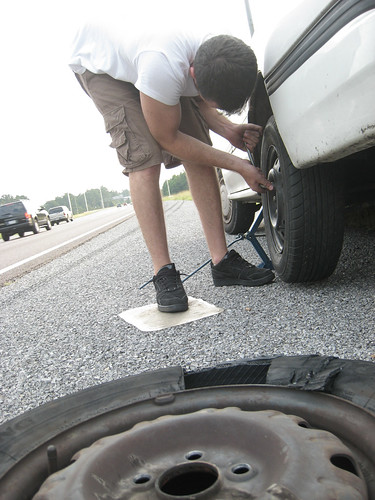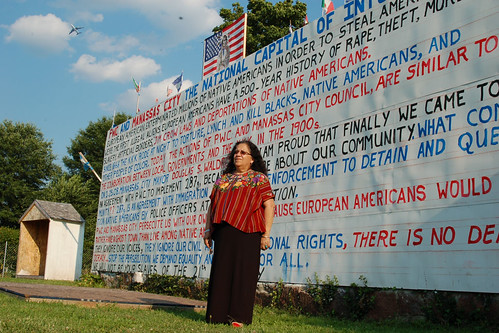Talking to New Hampshire voters
By Ewa Kern Jedrychowska
Reporter, Nowy Dziennik/Polish Daily News

On the eve of the New Hampshire primary, we went to 3 rallies – John McCain’s, Mitt Romney’s and Barack Obama’s. People that I interviewed in all these places were passionately sharing their views and expressing support for their favourite candidates. Almost as if they were trying to convince me that they are right. “This election is about one issue only – war on terror, and John McCain is the only candidate that can deal with it,” said Christine Liska, 57, a resident of Epping, during the rally in front of the Exeter Town Hall. “I’m tired of politics in Washington. I believe Obama will bring this country together and change its foreign policy,” said Heidi Page, 41, who lives in Deering and attended an Obama rally at Concord High School. These people had made up their minds. They were determined and the message they were trying to put across was almost as strong as the one of the candidates’ themselves.
Then I realized yet again how much I liked interviewing Americans. Whenever I talk to them on the streets of New York, I am amazed how open and enthusiastic they are. How they have no problems with sharing their views, and how they don‘t mind giving me their names and being photographed, unlike people from the Polish community that I cover for my newspaper. Poles usually don’t want to talk to the press, or if they do they prefer to stay anonymous. I can usually forget about taking their pictures. Some of them are undocumented and do not want to be exposed. Others say that, “this community is too small and they do not want their friends to recognize them in the paper.” As if having an opinion was something embarrassing.
So I was very surprised to get a “Pole-like” attitude on primary day in front of the polls in Exeter, right where the McCain rally
happened the night before. Most of the people that I tried talking to did not want to reveal who they voted for. “This is my private matter,” they would simply tell me. Only a handful agreed to share their thoughts with me. How strange… It did not seem to be their private matter the night before.
But then I understood that people going to the polls are not the same people that I met at the rallies. Most of the people who attend rallies are the convinced and determined voters who go there to express their support. Coming to rallies, I think, requires more involvement in politics than just going to the voting booth.
I also realized what should have been obvious right from the beginning: Americans from New Hampshire are not Americans from New York. I had always known they had different political preferences and voting patterns, but now I understand that probably some of them also had a different intimacy level.




